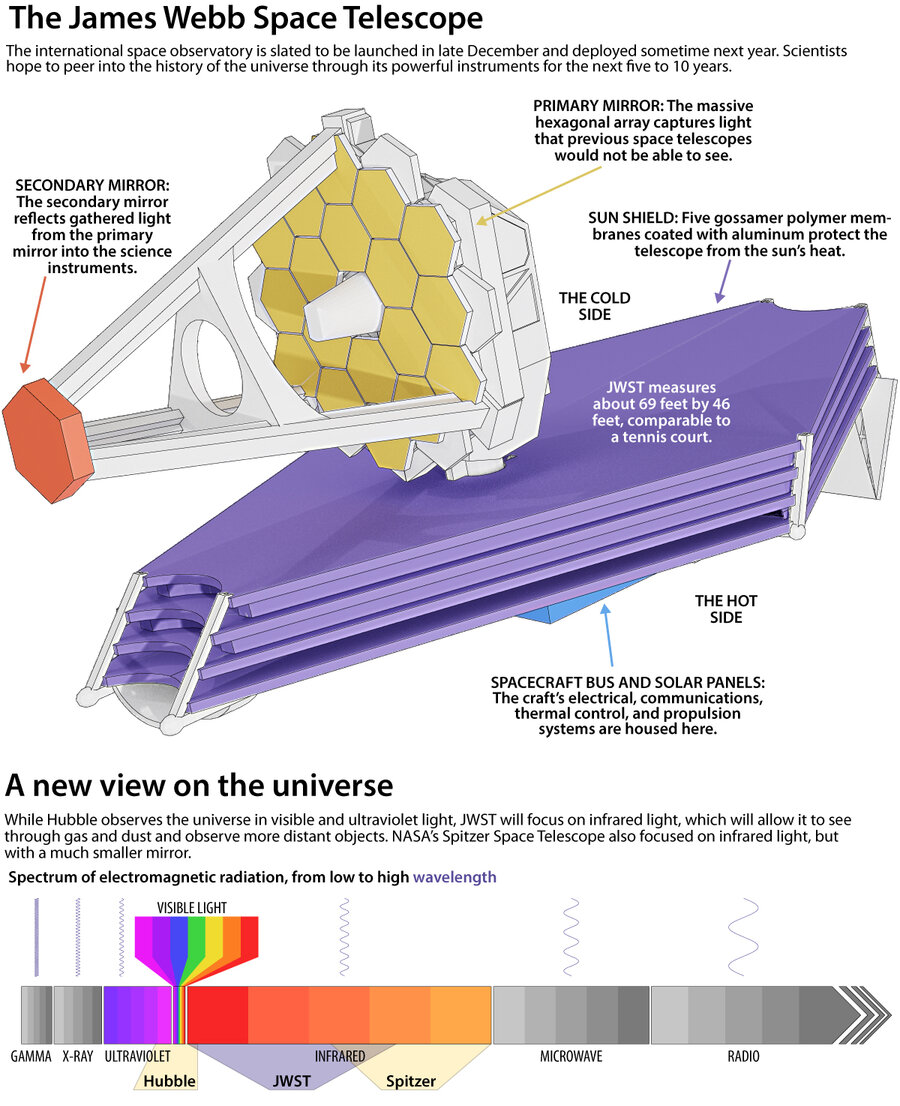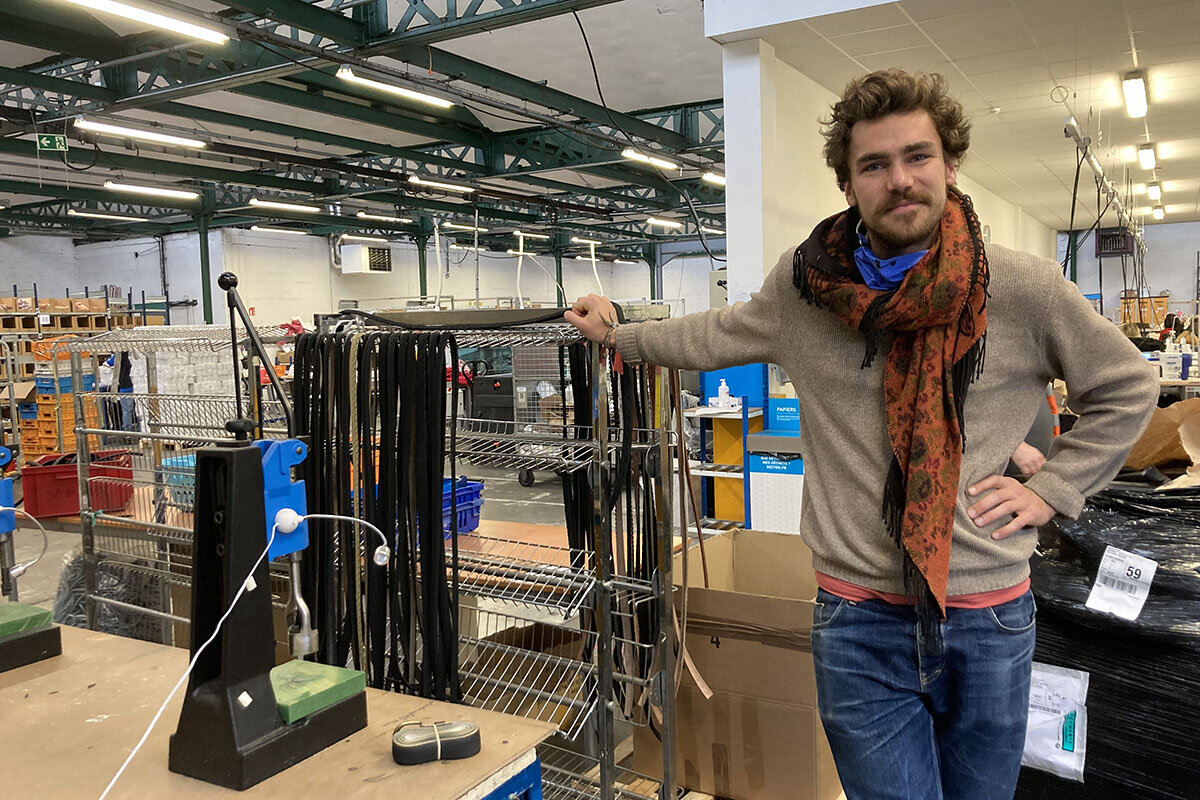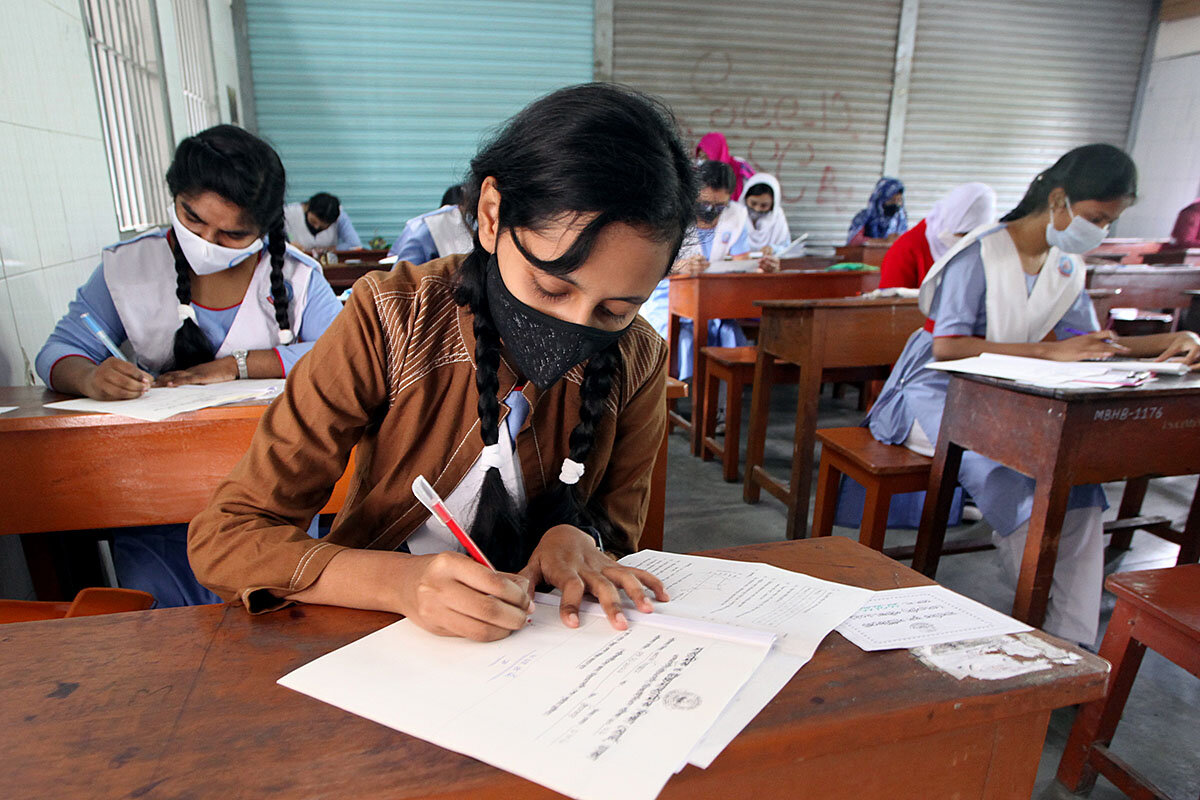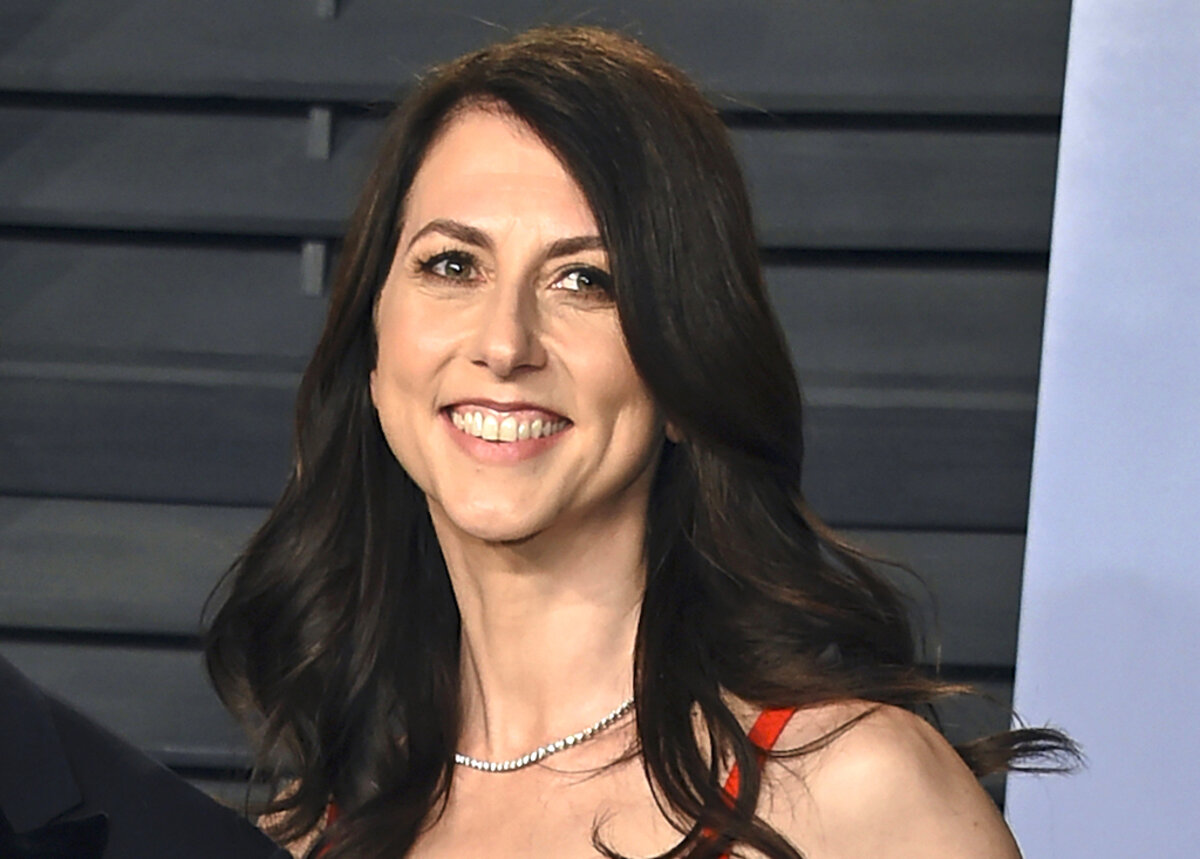The James Webb Space Telescope promises a new window on the celestial past that could help explain everything from black holes to life on other planets. Our reporter also looks at lessons learned from doing an expensive, mega-science project.
Monitor Daily Podcast
- Follow us:
- Apple Podcasts
- Spotify
- RSS Feed
- Download
 David Clark Scott
David Clark Scott
What does barbecue taste like after a devastating tornado?
In Mayfield, Kentucky, it tastes like brotherly love, prepped with a dry rub of compassion and empathy.
On Sunday, first responders, residents, and volunteer cleanup crews took a break from sifting through the debris for a moment of savory solace. Jimmy Finch drove from Clarksville, Tennessee, early that morning, hauling a meat smoker behind his pickup truck. In a community still without power, Mr. Finch showed up to supply not just any free hot meal, but barbecued chicken, sausage, and burgers. That counts as fine dining amid the devastation.
We saw something similar last year when volunteers poured into Tennessee after it was ravaged by tornadoes. Kentucky and other states hit by storms this past weekend have also seen a flood of support. The Team Western Kentucky Relief Fund has received nearly $10 million in donations from 66,000 people, reported Kentucky Gov. Andy Beshear on Tuesday.
Mr. Finch isn’t the only one cooking comfort food. Operation BBQ Relief, a disaster assistance group that touts “the healing power of BBQ,” arrived in Mayfield on Tuesday.
But Mr. Finch is a one-man pitmaster, paying out of his own pocket. “If it comes back to me, it comes back to me, if it don’t, it don’t,” he told The Washington Post. As his supplies ran low, folks started donating pork chops and breakfast sausages before the meat in their freezers spoiled. Neighbors helping neighbors.
In Mayfield, generosity smells like hickory smoke.












